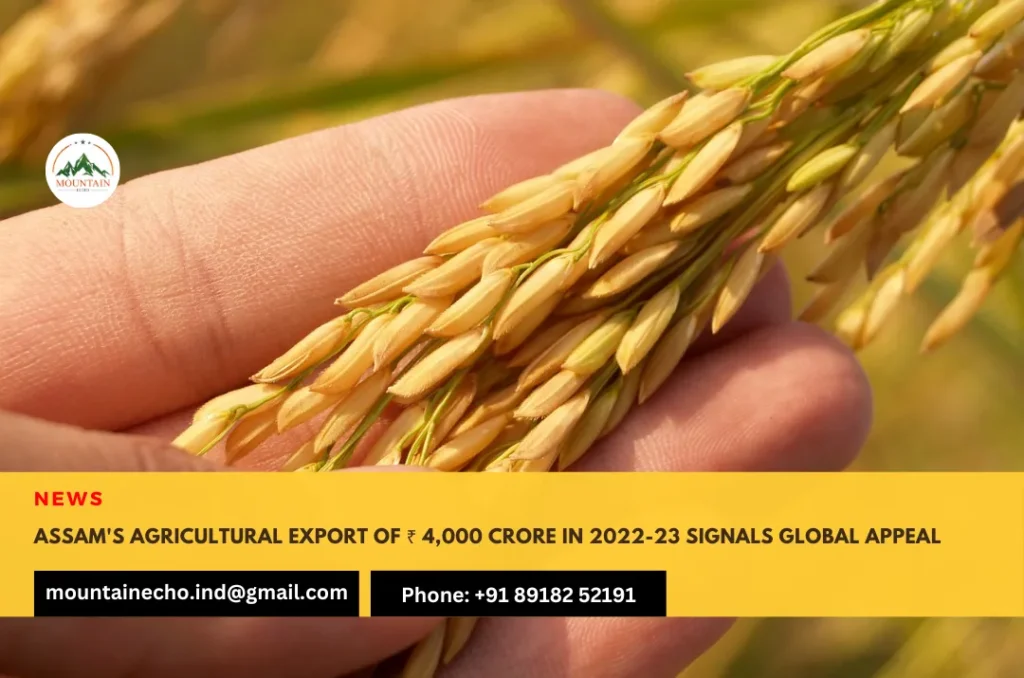Assam’s agricultural export of ₹ 4,000 crore in 2022-23 signals global appeal
WhatsApp Channel
Join Now
From lush tea gardens to bustling spice markets, Assam is proving its agricultural prowess by exceeding expectations in the export arena.
Assam Agriculture Minister Atul Bora said that Assam had exported agricultural products worth a staggering ₹ 4,000 crore during the financial year 2022-23.
It is a significant achievement for the state which shows the vast potential of its fertile lands and farming capabilities. It shows a remarkable growth trajectory, highlighting the diversification of Assam’s agricultural exports beyond its traditional mainstay, tea.
While agricultural export report shows that Guwahati Tea Auction Centre alone has sold Assam Tea worth ₹ 2,300 crore in 2022-23, it now shares the spotlight with a vibrant array of fruits, vegetables, spices, and even honey.
Bhoot Jolokia, Assam’s fiery spice, finds itself alongside pumpkin, jackfruit, litchi, pineapple, ginger, turmeric, joha rice, black rice, red rice, etc., finding eager buyers around the globe. Besides fruits and vegetables, there is a ₹ 100 crore flower market in the State. Flowers cultivated in the state constitute only about 15% of the total demand.
Minister Atul Bora, expressing elation at this milestone, credited the success to the relentless efforts of farmers and a focused approach towards improving export infrastructure. He further stated, “The farmers of Assam now realize the big market that exists for their products, and this is motivating them to adopt better practices and explore new avenues.”
The Federation of Indian Export Organizations (FIEO) has estimated that with improved infrastructure, Assam’s agricultural exports could potentially double by 2026-27. According to FIEO, 70 percent of the total exports in this sector from Assam are from five districts: Karbi Anglong, Dima Hasao, Dhemaji, Sonitpur, and Udalguri.
However, challenges remain. Inadequate cold storage facilities and limited air cargo connectivity can often act as bottlenecks. The Assam government, in collaboration with the APEDA is actively addressing these challenges by establishing food processing units, improving market linkages, and promoting GI-tagged products.
As the world seeks sustainable and diverse food sources, Assam’s agricultural bounty offers a promising answer. With a combination of supportive government policies, and strategic investments in infrastructure, Assam’s fertile land is poised to carve a distinctive niche in the global agricultural market.
Telegram Channel
Join Now



